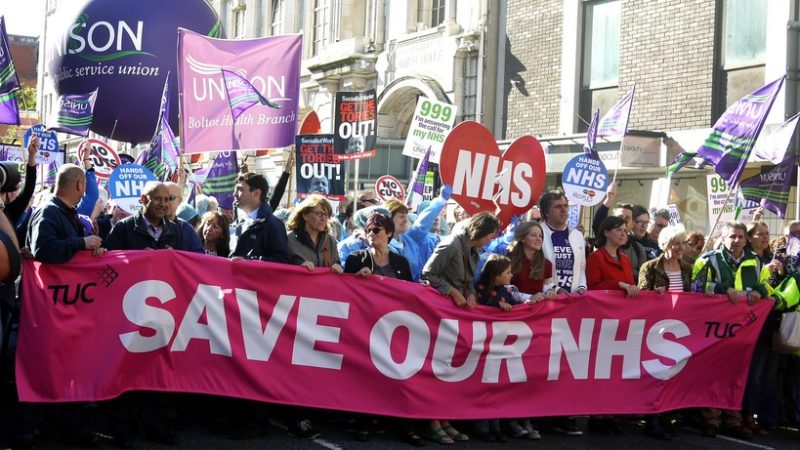The crisis in A&E dominates the headlines - but mental health provision is being torn up across the country.

When even a government health minister argued that ‘most’ patients have at least got access to a chair to sit on in A&E, you know something is going badly wrong with our NHS.
Ambulances have been queued up in rows outside hospitals, with over 100,000 patients waiting over half an hour in the car park, with over a quarter of these waiting over the one hour mark, while ‘non-urgent’ appointments have been cancelled, following a decision to cancel non-urgent operations.
At the same time, NHS staff are having to re-double their efforts to try to deliver the best care that they can at the same time as having to recognise that this care is not safe for patients.
As these unprecedented steps have to be taken, we must not forget that there’s a ongoing crisis which doesn’t only come in winter: the crisis in mental health provision.
Everyone, except it seems the government, seem to know that we do not have enough nurses in the NHS. Their response is that ‘nursing numbers have increased since 2010, including 11,700 more nurses on hospital wards’.
But look at the situation for mental health nurses however, and since the Conservatives came to power, their number has been cut by 13%. When you then factor in that the population of England has gone up by 5% and the numbers accessing mental health services has ‘probably’ increased, you can understand how the profession is under intolerable pressure.
On funding, when the ‘acute’ side of the NHS goes in to crisis, there’s often a ‘bung’ thrown its way. Although usually too little, and desperately too late, it is at least likely that this money might reach it’s intended destination. It’s nowhere near as likely for mental health.
The Kings Fund reported this week that the budgets of mental health trusts in England rose by less than 2.5% in 2016-17. This was ‘far less than the 6% boost received by acute trusts and those providing specialist care’.
If mental health services were starting from an equal place, this might be manageable for a very short time. But mental health trusts have come from a lower point and have seen this lower funding repeatedly, with this being the fifth year in a row that NHS bosses gave physical health services a larger cash increase.
This is despite the rhetoric of Theresa May and her ministers who repeatedly stress the need to give mental health services more money to address one of her ‘burning injustices’.
Although I could sound like a harbinger of doom, there are positives to reflect on. Like with those NHS professionals, managers, members of the public and celebrities coming forward to highlight their concerns about A&E pressures, we’ve seen similar in those highlighting this ongoing crisis in mental health.
But while May flounders on the issue, Jeremy Corbyn has continued his commitment to averting this all-year crisis, by having a shadow cabinet minister responsible for mental health, in Barbara Keeley. But more than that – he’s expanded his team, with the welcome appointment of Paula Sherriff to the brief.
With a Labour Government, we can again move towards a time when NHS winter crises are much less likely. I live in hope that with that change, we’ll also see mental health services get out of continual crisis too.
Dave Munday is a professional officer for Unite the Union
Left Foot Forward doesn't have the backing of big business or billionaires. We rely on the kind and generous support of ordinary people like you.
You can support hard-hitting journalism that holds the right to account, provides a forum for debate among progressives, and covers the stories the rest of the media ignore. Donate today.




One Response to “Under the surface, there’s another NHS crisis”
Jimmy glesga
The crisis is due to far too many people requiring medical attention and not enough staff to treat them. On a BBC Question Time many years ago the audience were moaning about the NHS but when asked if they wanted to pay more the majority of hands up sayed nay. It is the oldest story in the world, we want someone else to pay! Well there is no someone else. An additional special NHS tax the price of pint or a packet of fags should be levied on all citizens wages and benefits including state pensions.